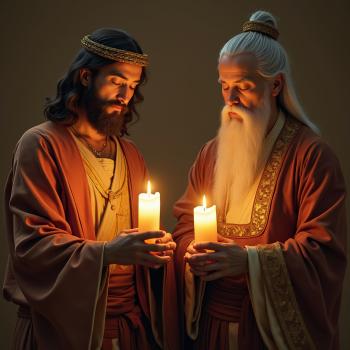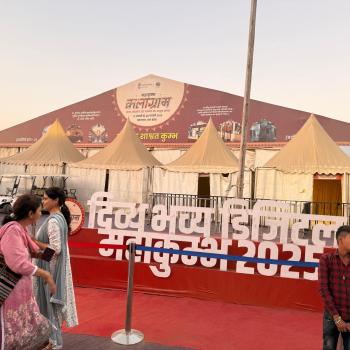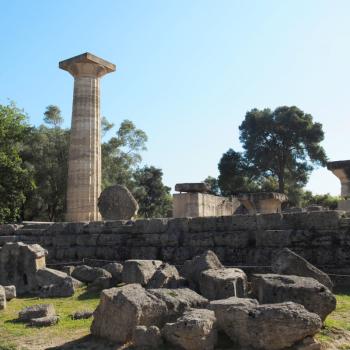Editor's Note: This article is part of the symposium, "What Is Progressive Christianity?" presented by the newly launched Patheos Progressive Christian Portal and in partnership with the Wild Goose Festival (June 23-26). Like us on Facebook to receive today's best commentary on Progressive Christianity.
I'm honored to participate in the Symposium on Progressive Christianity with a response to Patheos' invitation to "contribute a piece on the future of Progressive Christianity from the perspective of nurturing and growing Progressive leaders."
That future and those leaders form the heart of our work at The Beatitudes Society. Across the broad landscape of Progressive Christianity, The Beatitudes Society occupies a small and very practical niche: we are working to identify and develop the next generation of Progressive Christian leaders who will "speak truth to power for justice, compassion and the common good."
To talk about the future, I'd like to jump back to the summer of 2009, when a friend said to me, "Anne, I saw Bill Moyers on his show Friday night interviewing those three professors from Union Seminary. Now I get what you are doing in your new job—The Beatitudes Society is cutting edge—you're re-defining Christianity!"
Well, my friend wasn't quite accurate; The Beatitudes Society is not "re-defining Christianity," but we are in the business of bringing a new Christian voice to the public square, a Progressive Christian voice, a voice we sorely need.
In that TV interview, Bill Moyers asked Serene Jones, Cornel West, and Gary Dorrien "Who speaks for Christianity? I mean, James Dobson is a Christian. Rick Warren is a Christian . . . all of you are Christian. So who presumes to speak for Christianity?"
Moyer's question got my attention then and it still does. That's the question that has focused the work of The Beatitudes Society since our founding in 2005: who defines Christianity today? How do we recognize Christianity? How is Christianity known in the public square?
The Beatitudes Society was founded because only one voice dominated the public conversation, that of the Religious Right. To oversimplify, Christianity was known for what it stood "against" (and what it voted against in 2004): abortion and gay marriage. In mirror fashion, other Christians who did not identify themselves as part of the Religious Right, also described themselves as what they were against, or what they were not: "I'm a Christian, but not that kind Christian."
Our work at The Beatitudes Society is not about coming up with a narrow definition of Christianity, nor about creating a new litmus test for what might be "progressive enough" either politically or theologically, but rather about nurturing new Christian leaders who can articulate what they are for, while understanding what they are against. The best guideline I know for this is the beatitudes themselves, Jesus' radical anti-Empire manifesto for a new way of living that is aligned with the concerns of the poor, the meek, the peacemakers, the justice-seekers, and the persecuted.
And so we launched our Summer Fellowship program in 2006 to provide seminarians with advocacy work at key national social change organizations where faith and public life intersect (places like Faith in Public Life, Human Rights Campaign, Interfaith Worker Justice, Bread for the World, United Religions Initiative, The Regeneration Project, and Sojourners.) Deployed in Washington, D.C., Chicago, and San Francisco, the Summer Fellows work as interns at their respective organizations and meet weekly in their local groups for reflection sessions. Their work together is supported by our curriculum called "Practicing a Public Faith" (designed to accompany Delwin Brown's book What Does a Progressive Christian Believe?).




